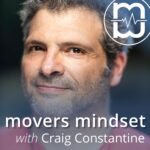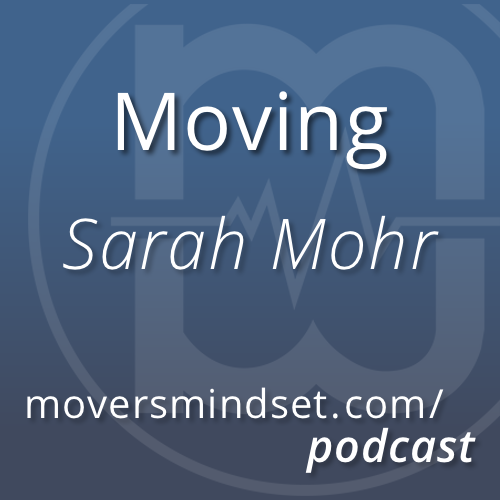
What roles do movement, play, and internal-external balance play in human connection and self-expression?
The balance between internal and external experiences shapes how individuals perceive and express themselves.
“Let us have the capacity to lose the safety, and the illusion of the safety, that we are given in our century, to figure out that pain is our beautiful companion.” ~ Sarah Mohr (16:32)
The conversation explores the intrinsic human connection to movement and play, emphasizing how these activities serve as fundamental forms of communication. The discussion highlights the cultural differences in how movement and play are expressed, with some societies engaging more openly and visibly, while others internalize their play through structured or intellectual means. The relationship between internal and external experiences of play is dissected, particularly through the lens of dance, where the external beauty perceived by audiences contrasts with the internal mental and physical challenges faced by the dancer.
Another key focus is the integration of pain and love as essential forces for learning and personal growth. Pain is presented as a necessary companion that helps individuals rediscover their authentic selves and reconnect with forgotten aspects of their identities. This rediscovery is tied to the idea of balance, both within oneself and in relation to external perceptions, underscoring the role of self-awareness and trust in navigating life’s complexities.
Takeaways
Rediscovering forgotten selves — A significant part of personal growth involves reconnecting with aspects of oneself that have been neglected or forgotten.
Cultural approaches to play — Different societies exhibit varying levels of visible or internalized engagement with play.
Pain as a learning tool — Pain is essential for building trust, love, and a deeper understanding of oneself and the world.
Dance as a metaphor — Dance exemplifies the duality of internal struggle and external expression, providing insights into broader human experiences.
Integration of experiences — Personal growth often requires integrating disparate experiences into a cohesive understanding of oneself.
The illusion of safety — Breaking free from the illusion of safety can lead to profound self-discovery and freedom.
Internal versus external truth — Balancing internal perceptions with external realities is central to authentic expression and connection.
Movement as communication — Movement is an intrinsic and universal form of human expression and interaction.
Resources
Sarah Isabel Mohr @saisabelmohr
(Written with help from Chat-GPT.)
— Hello👋 I’m Craig Constantine.
In the Movers Mindset podcast, I talk with movement enthusiasts to learn who they are, what they do, and why they do it. I’m interested in the nature and philosophy of movement and in exploring themes like independence, self-direction, and human excellence. My interests color each conversation and provide some structure to Movers Mindset. But since I like to take the scenic route, every conversation ends up going somewhere unique.
The purpose of Movers Mindset is to create and share great conversations with movement enthusiasts. Each conversation feeds my insatiable curiosity, but I share them to turn on a light for someone else, to inspire them, or to give them their next question.
I appreciate your time and attention, and I don’t take it for granted.
— Thank you!
Want more? Subscribe to the email list for weekly updates—new episodes and archive highlights delivered to your inbox.
I invite you to cultivate a meaningful life—through presence, not pursuit. You can learn more about me and all my projects at, https://craigconstantine.com.
If you like what I’m doing through Movers Mindset, learn more about becoming a patron.
ɕ
